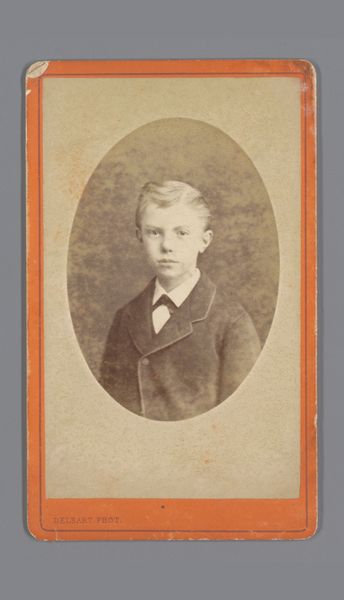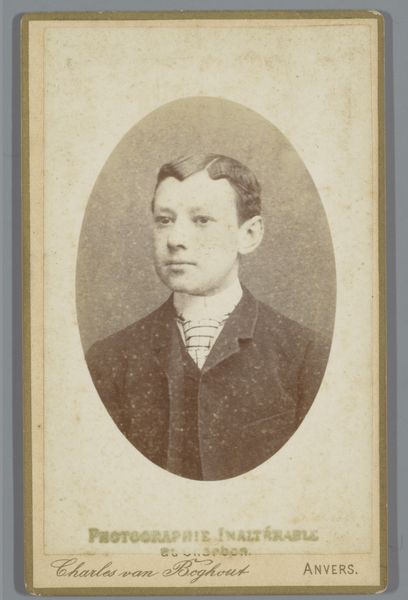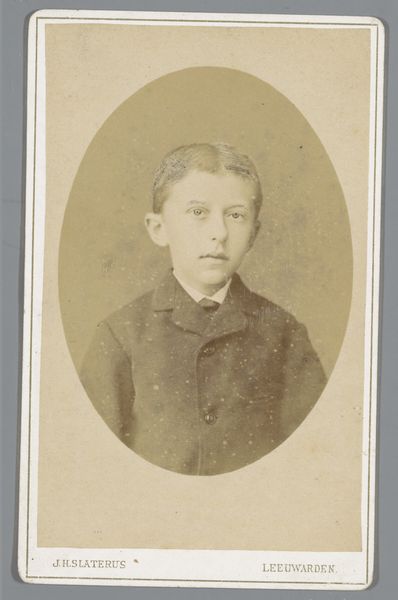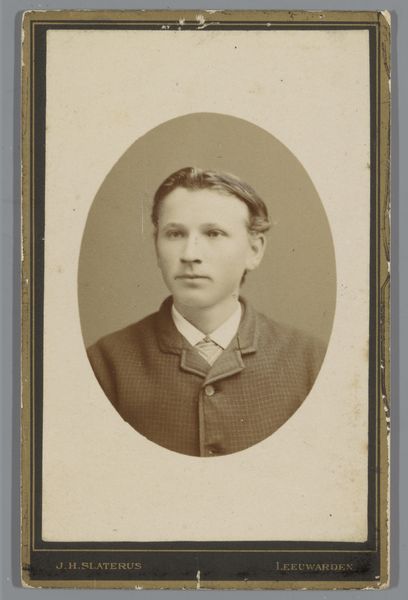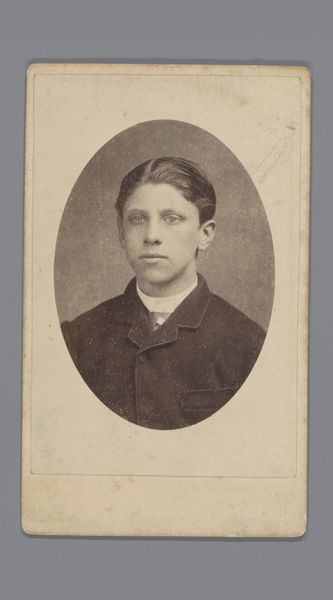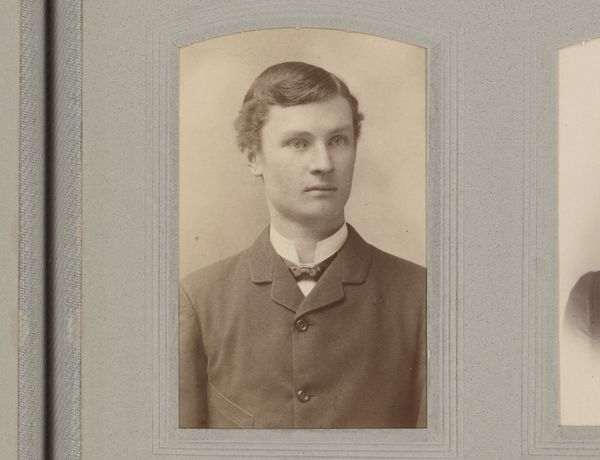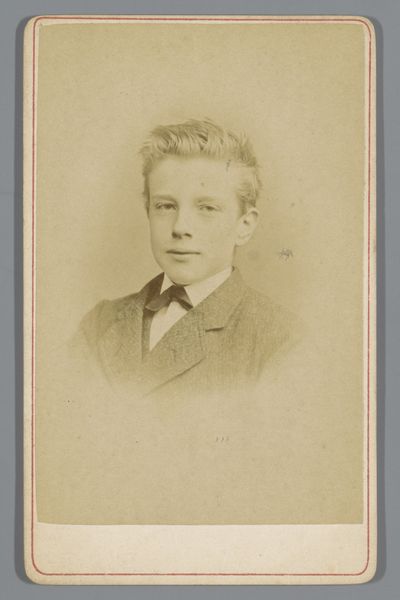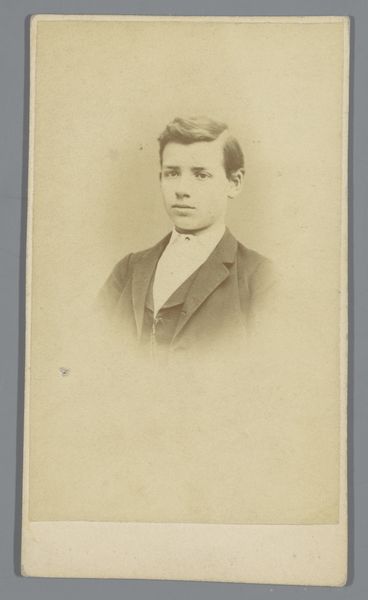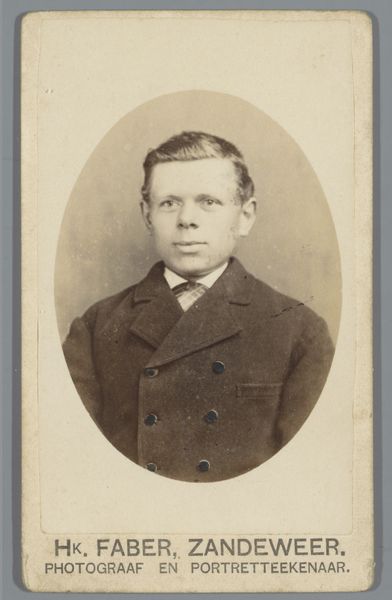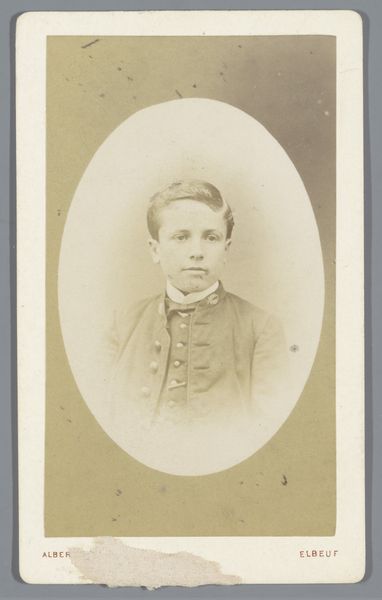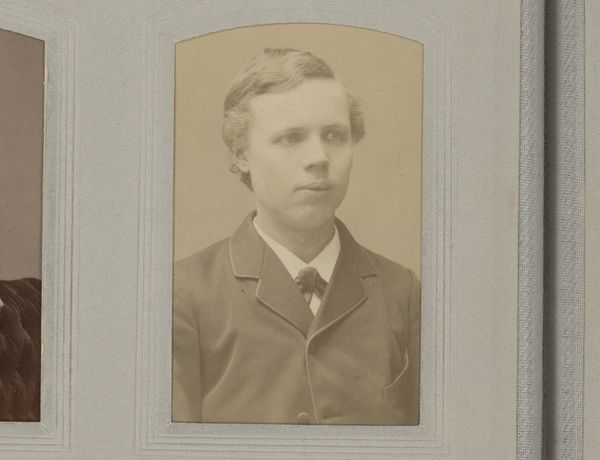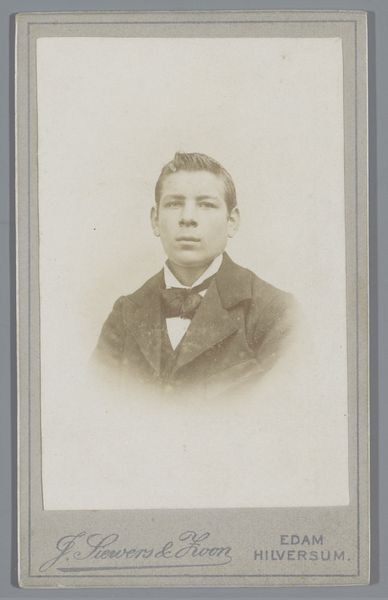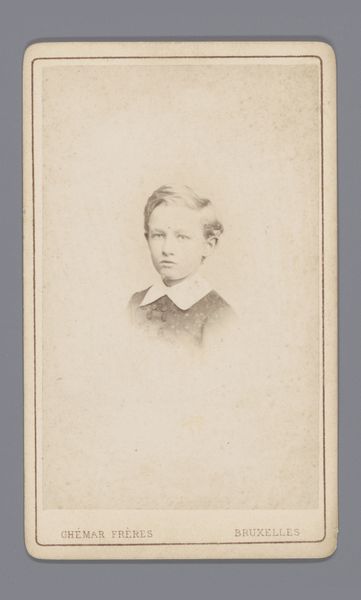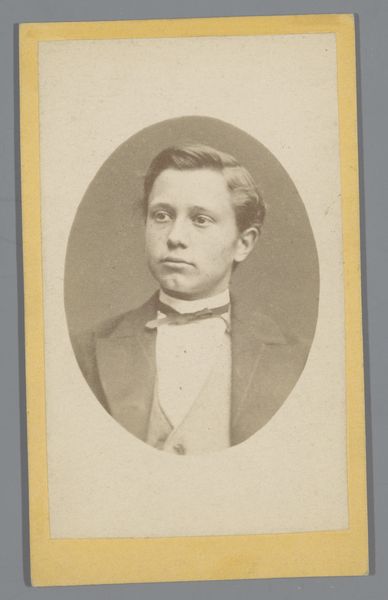
#
tall virtical shape
#
photo of handprinted image
#
aged paper
#
wedding photograph
#
photo restoration
#
unrealistic statue
#
framed image
#
19th century
#
cutout
#
statue
Dimensions: height 103 mm, width 64 mm
Copyright: Rijks Museum: Open Domain
Editor: So this is “Portret van een onbekende man,” or “Portrait of an Unknown Man,” taken around 1884-1885 by Maria Hille. It looks like an old photograph, sepia-toned and faded. What’s particularly striking to me is the formal pose, which suggests this photo was meant to convey a particular status. What stands out to you in this portrait? Curator: The anonymity itself is quite powerful, isn't it? We look at him and immediately start filling in the gaps, projecting our own narratives. The oval shape reminiscent of a cameo carries a wealth of symbolic meaning. It echoes the classical tradition of portraiture, suggesting this "unknown man" aspired to be seen as part of that lineage. Look at the crisp details of his clothing. What status do you think he wants to project? Editor: Definitely respectability. The dark jacket, the neatly knotted tie—it’s all very bourgeois, right? He's projecting stability. Curator: Precisely. And notice the careful attention to his hair, neatly parted and styled. Hair has historically been laden with symbolic significance, representing everything from social standing to personal virtue. In this instance, it's carefully controlled, suggesting a desire for order and self-discipline. How does that affect your interpretation of him? Does it challenge any preconceived notions about 19th-century portraits? Editor: It does. The image is a powerful, concise statement of bourgeois aspiration and cultural values. This portrait also made me reflect on who gets remembered and why. The survival of this photograph speaks to the power of images. Curator: Absolutely. Even without knowing his name, this portrait evokes a connection across time. By recognizing shared symbolic languages, the past remains vibrant and accessible to the present.
Comments
No comments
Be the first to comment and join the conversation on the ultimate creative platform.
